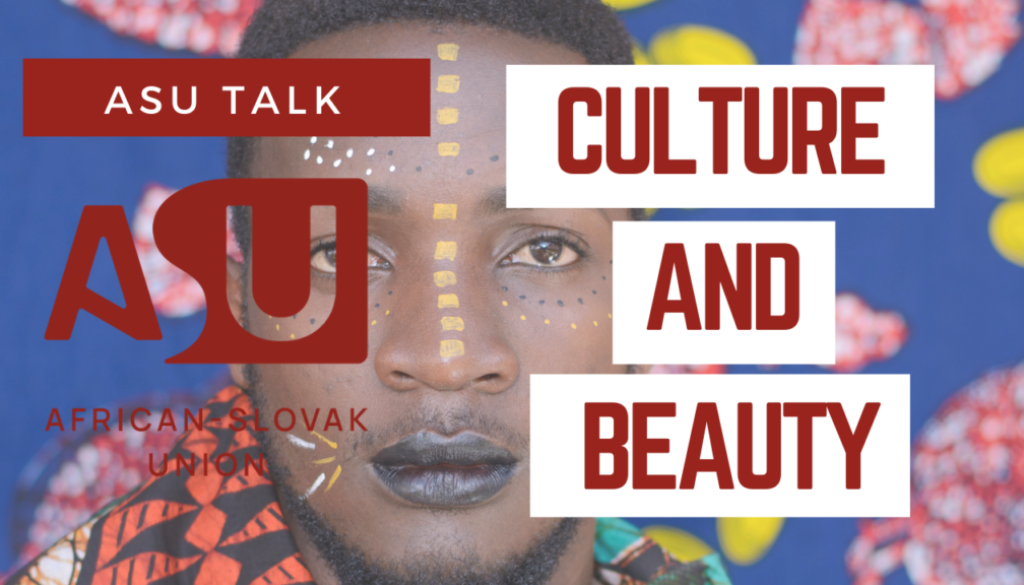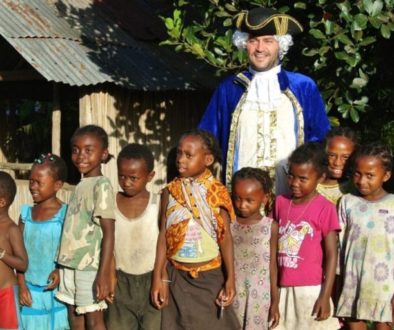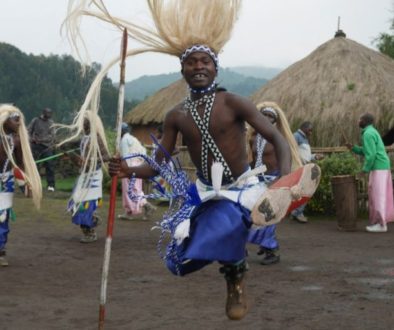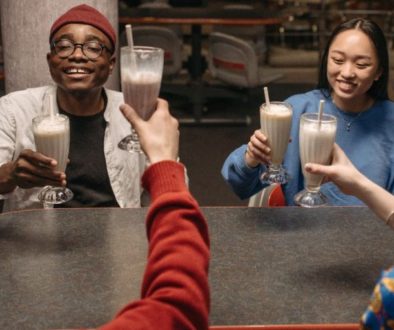Africa As You Know It: African Culture and Beauty

Where lies The Country of a Thousand Hills? Why are Slovaks always late or early for their appointments? What is the South African „Gumboot Dance“? Is Bratislava similar to Kampala? According to our speakers who presented on our first online Facebook discussion, African beauty can be seen in places, observed in people and experienced with every pore of your body.
Talking about African culture is rather a complex thing, our main speaker Tomáš Horváth pointed out. There are more than 2000 different languages on the Black Continent, whereas in Europe we speak around 200. Since culture is tightly connected with territory and language, the implication is quite obvious and to understand the culture, you have to be present. His first experience traces back to Rwanda, the Country of 1000 Hills, where he was working on humanitarian projects for a few months. The significant difference between Slovakia and Rwanda is the access to essential necessities like electricity or water. In Rwanda, those are rather a privilege than a matter of course. Working there, Tomáš inevitably interacted with the locals and their culture. „To know the people, you need to ask about their history. You need to connect it to the present… I believe that to understand the culture, we are to listen to the local community with open ears and hearts.“ He certainly did. For instance, there is the very unique way Africans understand time. He was never on time until he realised that in Africa, time counts from the moment the sun rises, not from midnight. The day starts, when people wake up and start living it. Like this, in the beginning he was always six hours too early!
Tomáš, nonetheless, pointed out that there are also parallels between Slovakia and countries he visited in Africa. On the one hand, the capital of Uganda, Kampala, is one chaotic, crowded and noisy place full of life, not quite like Bratislava. People cross the road anytime and anywhere they please. While sitting in the car in the traffic jam, you can buy sunglasses, fruit, water and even toilet paper from street vendors. On the other hand, people are very similar. Busy, business-oriented town people in bright contrast to those from rural areas, who Tomáš perceives as more friendly, more open, more generous. Is it not the same when you take a moment to think about our villages? Those who have less, usually give more, because they know how it feels to have little. This part of culture seems to be universal.
„We were able to build a clinic within a few months and began operating it. In Slovakia, we build a clinic for 8 years and then we don´t even open it,“ he offered a food for thought to the audience on the opposite note. We can learn from each other and help each other. In the end, we are one community despite the fact that Slovaks are living pretty well, ranking 37 in the HDI (Human Development Index), while the last 10 spots are occupied by African countries. And we as Slovaks do have an influence on this as well. „Just think about climate change. We, the developed countries are causing it more, but less developed countries are the ones who are directly affected. People tend to move from the place where they were born and raised and where they actually want to live because the land is destroyed, there are floods and draughts and this makes it impossible to live there.“
Alexandra Kovalčíková contributed to the discussion on a very similar note saying „I cannot save the world, but I can give to individuals“. This motivation of hers made her take a hard decision as she quit her job here in Slovakia, because she felt the urge to do more, to do better, to help.
She also volunteered in Rwanda and in her eyes, the locals were living like a tight-knit community. „They know each other. The neighbours are family. In Slovakia it is more incognito. There, the neighbors take care of your kids, they talk to each other and also help solve marriage problems for example, because it is everybody´s concern…“ She was even given a sincere advice from a local woman: „When you have bad neighbours, your husband can make wrong decisions. He can start drinking! Good neighbours give good advice and this cannot happen.“
All this sharing and exchange of points of view, opinions and experience made Alexandra realize that: „You do not need to be materialistic. It is about relationships, not things. After my stay in Africa, I feel more humble and a better person.“
Tomáš readily agreed. „Happiness lies somewhere else than people in the developed world think. Africans, they are happy to share their fish with you, they are grateful to talk, they welcome you in a very simple home. The kids there wish for the opportunity to go to school, while some of our kids hate it. Life can be simple, happy with less things.“
Kiboi Sakong, a Kenyan expat who has been living in Slovakia for years now and speaks Slovak fluently, undoubtedly has a lot to reflect on. „200 years ago we did not have Kenya. We simply had separate communities that maintained and observed distinct handed-down norms, cultures and traditions oblivious of each other’s existence. Members of a community did everything together.” They would celebrate and mourn together. They cared for themselves and they shared a collective responsibility. We had no religion in the modern sense. We had a system of beliefs that included the unborn children to come, the people that are, the elderly who soon will pass and the dead who are no more. All of these people are part of the community. We believe you are one and the same.“
Then, he said, his land went through the colonization period and got westernized. This brought tremendous changes and to some extent a paradigm shift. The communities started to interact and mix more. The concept of the identity, however, remained unchanged. When people meet, they are proud to show the uniqueness of where they came from. They like to show where they belong, what they believe and how they live. And this is not only tolerated, but it is celebrated. „In diversity lies the beauty. African dances, African dresses. When we show up, we will represent and be proud and it is widely accepted.“
Romana Jurigová, the member of the Afrogang, a dance group who dedicate themselves to the African style of dancing and who promote it not only in Slovakia, but also abroad, bridged towards her experience. „We as Slovaks are still not that open and African culture has not yet had that much influence.“ She is doing her bit in this regard and she lives for what she does. „The vibe, the music, the rhythm is so positive it will not let you sit!“ she claimed. „And through dancing, you will understand history.“
Amateurs perceive African dance moves as nice, smooth, energetic, difficult, impossible… just name it. She knows that there is more to it. „Spharaphara, a dance move from South Africa, comes from a real life experience. It resembles a moving train. They used trains to go to work, but rarely it did stop. They had to jump and that is how it came to be. Initially, it was just for men as men were the ones who went to work. Now, women are joining. It brings joy!“
Another dance that has more to it than meets the eye, is the „Gumboot Dance“. It is effectively a Morse code dance that originated in the mines of South Africa. The black miners during the Apartheid period were working in the mines wearing simple gumboots, often chained, without light and forbidden to talk to each other. So they decided to let the boots talk. In other words, even during the darkest hour, rhythm and joy found a way to make the workers show their strong will, energy and it also served as a community building factor.“
We were happy to read a comment saying that one of our participants would be travelling to Kenya soon enough, and that he found all of this inspiring, exciting and helpful. We do aspire to foster discussions that attract a number of people, who would like to share their experience, opinion or simply ask questions to know more about the topic they are interested in. Are you one of them? Like our page to find out about the next event and don’t be shy to speak up!



